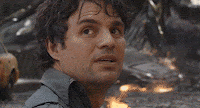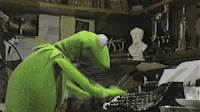Spectacular spectacular!
What I’m going to do this week is run through a few questions and requests that have shown up here this summer. A few of them I can do a full post on, but some of them are things I’ve touched on before (or, at least, I think I have) so I think I can answer them with a few paragraphs and links.
So… let’s get to it.
How similar are your drafts in terms of character arcs and overall plot?
Tricky question that’s going to be a little different for every writer and for every project. For me, once I get
a pretty solid draft, it’s really rare for things to change that much. It happens sometimes, but not often. I think once
the plot and story are solid, for most writers, there won’t be any real changes to them.
Please note, though, that I didn’t say
no changes. Every draft is going to be a little different as I tweak and cut and make other adjustments. But all of these adjustments serve the plot and
the characters. Things are just getting tighter and clearer. Maybe it means omitting a few story beats or changing someone’s second language from French to Spanish. But these changes aren’t changing the bigger picture, they’re enhancing it.

It’s probably worth mentioning that if I’m making changes that
do radically alter my plot or characters, what it really means is that I don’t have a solid draft yet. Yeah, even if I’ve done six drafts before this. If I suddenly realize
Yakko should be my main character while
Dot’s the supporting character who dies in the second act… that’s a big change. That’s a lot of changes. It means different interactions between different characters, new motivations, possibly a whole new
linear structure. And it also means I’m kind of
going back to square one. Now I need to tweak and cut and make adjustments to
this plot and story.
Do you have any thoughts on working on multiple projects at once? Like editing one, drafting another, plotting a third? Is that something you do?
Yeah, I do this, but in a bit more limited sense. When I’m working on a first draft of something, I focus pretty much exclusively on that. Once I’m out of that, though, and
into the editing, I’m always jotting down character ideas, lines, beats—all sorts of elements—for whatever I’m going to be working on next. So while I’m doing drafts on one I’m setting all the groundwork for another. I’ve also found this helps me as far as
any kind of block goes—being able to dip my toes into something else helps keep my brain from getting stuck on a project.

Overall, though, this is one of those things that’s definitely more advice than rules, because it’s all going to come down to the individual. Am I someone who can split their attention or not? And to what extent? Some folks can do it (to different degrees), some folks can’t. Unfortunately, the only way to find out is to try it once or thrice. I’m comfortable at the level I just described. You might be able to do two or three things side by side. Someone else might need to focus on one thing at a time.
I do think it’s worth noting that “another project”
can easily be a distraction, too. Sort of like eating when you’re bored. I’ve also seen some folks use multiple projects (consciously or not) as an excuse
to never finish anything. Sooooo… something to keep in mind.
I’m still struggling with how writers develop an interesting narrative voice – character voice I think I’m getting the hang of, but the narrative bits still sound like me reading a grocery list.
Narrative voice can be tough. Part of it depends on how much I want to insert myself as the author. Some folks do this extremely well, others… not so much.
As far developing a narrative voice goes, think of it like a narrator. Who’s actually telling this story to the reader? I’m not saying my book or short story has to be in first person, or that a narrator even has to exist, but in my perfect world, who’s reading this aloud? Christopher Lee?
Felicia Day? Doug, the guy down at the garage? Ms. Phoebe, my college English professor? Knowing the narrator tells me how they talk and what kind of words my narrative voice will use.
So, from a certain point of view, the narrative voice is another character. Even if it’s me, it’s the version of me I’m choosing to project through my writing (a friendly me who wants you to enjoy the story and is going to tell it in fun, simple terms, and who also has much better abs…). So narrative voice is a lot like character voice, which is something I mentioned here just a few months back. Well, okay,
a year and a half ago…
It’s probably worth mentioning that if there isn’t some kind of narrative voice in my head to start with, that might be a sign of a bigger problem. If I have no sense of how my story should be told—how my audience should be hearing the words in their heads—I may need to stop and think about things some more. Maybe
the plot or the story aren’t as solid as I thought, and if they’re not clicking with me, there’s a good chance they won’t click with anyone else.
Do you feel an author should stick to one genre for the most part? I want to go write something as far from my current genre as possible. Will that throw my fans for a loop? I notice that you and most other authors pretty much stick to one thing.

Well, I’d argue not much of my work falls in the same genre, unless we’re talking in broad, sweeping terms. I’ve got a superheroes vs. zombies series (sci-fi fantasy with some soft horror), a suspense-mystery-horror novel, a sci-fi thriller, a classic mash-up where I share credit with Daniel Defoe, and I just started work on a historical time-travel road trip story. I’ve also got some short stories out there that are straight horror, some that are straight sci-fi, and even a pulp action war story.
Heck, look at Stephen King. He’s known as a horror writer, but
Firestarter and
The Dead Zone, two of his earliest works, are pretty much straight sci-fi when you really look at them (there’s a post in that alone).
Under the Domeand
11/22/63 are both pretty solidly sci-fi, too. The Dark Tower series is an epic fantasy.
Eyes of the Dragon is a young adult novel. And then there’s “Rita Hayworth and Shawshank Redemption,” a prison drama/character study that was adapted into a wildly popular film by Frank Darabont.
So, no. I don’t think an author needs to stick to one genre. Yeah, there are some fans who might get upset I’ve moved away from their particular interest, but there’ll be just as many who’ll be intrigued to see how I deal with something else, and new ones who’ll come to me because of that something else. And it’s my opinion that flexing those other muscles, so to speak, usually makes someone a better writer overall.
I will say, though (there’s a “however…” on almost all of these, isn’t there?), that I don’t recommend
chasing the popular trend. It’s tempting to jump on the nymphomaniac-android-biker-school-romance bandwagon, I know. But it rarely works out well in the long run.
And I think that’s everything for now, yes? Okay, I went over three or four paragraphs for some of them, but if you’re going to complain about that… Also, if I misread your question somehow, or if my answer just wasn’t complete enough, please say so down in the comments and I’ll try to answer there. Or maybe bump it up to a full post.
Next time, I’m going to answer one of those larger questions I mentioned up at the top.
Until then… go write.
 Blackbirds by Chuck Wendig – I am super-late to the table with this one, because Wendig’s been writing this series for five years now. Miriam Black is a foulmouthed alcoholic who’s gifted (or cursed) to immediately know how and when everyone she touches is going to die. After years of dealing with said ability, she’s seen someone’s future death that involves… her. It’s funny and dark and fantastic and I think there are five of these books now.
Blackbirds by Chuck Wendig – I am super-late to the table with this one, because Wendig’s been writing this series for five years now. Miriam Black is a foulmouthed alcoholic who’s gifted (or cursed) to immediately know how and when everyone she touches is going to die. After years of dealing with said ability, she’s seen someone’s future death that involves… her. It’s funny and dark and fantastic and I think there are five of these books now. An Excess Male by Maggie Shen King – I got to read an early copy of this and it’s just brilliant. A dystopian tale set in future-China, where the one child policy has gone… well, just like everyone predicted. Our four protagonists are trying to form a family while also each hiding an array of personal secrets and deciding who to trust with them. It’s a fantastic, slow-burn book that reads like the wonderfully twisted love child of The Handmaid’s Tale and Big Love.
An Excess Male by Maggie Shen King – I got to read an early copy of this and it’s just brilliant. A dystopian tale set in future-China, where the one child policy has gone… well, just like everyone predicted. Our four protagonists are trying to form a family while also each hiding an array of personal secrets and deciding who to trust with them. It’s a fantastic, slow-burn book that reads like the wonderfully twisted love child of The Handmaid’s Tale and Big Love. We Are Wormwood by Autumn Christian – a beautifully surreal tale about a young woman growing up with insanity and then… well, descending into it herself with a few nudges from her demon girlfriend. Christian also has a fantastic collection of creepy/scary/sexy short stories called Ecstatic Inferno that I wolfed down in about a day. I befriended her on Twitter just so I can constantly prod her to write new stuff for me to read. I’m selfish that way.
We Are Wormwood by Autumn Christian – a beautifully surreal tale about a young woman growing up with insanity and then… well, descending into it herself with a few nudges from her demon girlfriend. Christian also has a fantastic collection of creepy/scary/sexy short stories called Ecstatic Inferno that I wolfed down in about a day. I befriended her on Twitter just so I can constantly prod her to write new stuff for me to read. I’m selfish that way.



